'Don't just criticise, create!': Interview with Wolfgang Fenske, Director of the "Library of Conservatism"
This is the twelfth instalment of our new interview series called, "Don't just criticise, create!" David Engels speaks with European artists, philosophers, priests, intellectuals, activists, and artisans who have each decided not only to lament 'the decline of the West' but also to endeavour to help reverse it. They have done this by making something new, and also perhaps something beautiful, true, and good.
David Engels: Dear Dr. Fenske, you have been the director of the Berlin-based "Library of Conservatism" since its foundation. This designation already requires an initial explanation: What is "conservatism"? It is a broad field...
Wolfgang Fenske: (Laughs) Yes, of course you are right! Since our foundation, we have faced a double challenge: on the one hand, to offer a place where research on what "conservatism" means can be conducted in a uniquely concentrated form, and on the other hand, to provide expertise on this very question - as if it had basically been decided long ago. Irrespective of this, we of course already have an in-house definition of what we internally regard as "conservative": namely, all those efforts in politics and society, but also in art and culture, education and science, which are aimed at reasserting the Western tradition in each area. Of course, this raises new questions, this is quite clear to me ...
Indeed! Could you at least briefly outline what exactly you mean by the much-invoked "Western tradition"?
It begins with the reference to the Triune God, into whose worship the Greco-Latin tradition flowed. Of course, not in the sense of a personal confession of faith, which can hardly be demanded, but in the sense of a confession of an evolved cultural identity. This results in an image of the human being that realistically understands him or her as a being with faults and shortcomings. It is of secondary importance whether you see him in the biblical sense as fallen through original sin or, according to Arnold Gehlen, as a "flawed being". Furthermore, the assumption of natural law, which implies, among other things, that the family forms the nucleus of a people, while the model of a contractual society based on individuals remains secondary to that. And finally, an understanding of history according to which it is fundamentally indeterminate and does not necessarily run towards "higher development".
May we ask you to briefly introduce your institution to our readers?
The Library of Conservatism (BdK) opened in 2012 in a central Berlin location in Charlottenburg near the Zoo railway station. Its foundation goes back to Caspar von Schrenck-Notzing (1927-2009), who was the editor of the conservative theory organ Criticón from 1970 to 2000. His private library with around 15,000 titles formed the basis of the BdK, whose total holdings have now grown to around 35,000 titles. All important source and secondary texts on the theory and form of conservatism in Germany, Europe and the world are collected here, new publications are purchased and gaps in the collection are filled. Thousands of works by well-known and lesser-known philosophers, politicians, writers, artists and publicists of conservatism from 1789 to the present are thus made accessible to the public in a systematic arrangement.
In addition, there is a collection of more than 500 newspapers and periodicals from the past and the present, of which more than 70 are current. An archive, which is currently under construction, makes valuable bequests and correspondence of conservative personalities available for research, including the correspondence of Caspar von Schrenck-Notzing, the federal party archive of the "Republicans" or the famous note box of Armin Mohler, with the help of which he wrote his book on the "Conservative Revolution".
Twice a month we have a "full house" when we invite people to lectures and book presentations that are related to the topic of "conservatism" in the broadest sense. These are then also recorded and can be viewed on our YouTube channel by those interested who cannot come to our event.
We pay special attention to educating the next generation of conservatives. Since 2014, we have been holding seminars for pupils, students and young academics up to the age of 35. Starting from this year, we no longer hold academic semesters with weekly sessions, but offer "Young Conservative Seminars" as block seminars three to four times a year. This gives interested people from all over Germany and beyond the opportunity to take part in the seminars.
With the publication series ERTRÄGE documents all lectures held as well as academic papers written in connection with the BdK. In addition, we publish our bimonthly information letter AGENDA to keep our friends and supporters up to date. Each issue contains a portrait of a conservative personality, recommendations of classic and newly published conservative literature, event reports and outlooks, and much more.
This printed offer has recently been supplemented by two podcast series of our own: The Forum series, like the YouTube channel, documents our lecture events; the Katechon series forms the BdK's theory podcast. Here, important thinkers and authors are introduced, central conservative principles and theories are explained, classical works as well as new publications are presented.
That's quite a range you have on offer!
And that with only four full-time employees ...
This inevitably raises the question of financing: do you receive state subsidies?
(Laughs again) I wish we did! No, unlike the countless left-wing, left-liberal and green institutions, think-tanks and activists in Germany, the Library of Conservatism receives no money from the state. We finance ourselves 100 per cent from donations! Of course, this has one decisive advantage: we are completely independent and not dependent on anyone's goodwill. That is why we are very grateful to our supporters for their often long-standing loyalty - and are always looking for new supporters!
To whom do your supporters donate?
The BdK is supported by the Foundation for Conservative Education and Research (FKBF), a non-profit foundation under private law, which Caspar von Schrenck-Notzing himself founded in 2000.
Last year, the BdK celebrated its 10th anniversary. This alone is already a success not to be sneezed at, considering the resistance that any conservative institution has to face, especially in Germany and particularly in Berlin. How would you assess the path your institution has travelled in that time? And what are the plans for tomorrow?
We are very grateful to our supporters that they have remained loyal to us despite all the difficulties during these ten years. Without them, our path from the smallest beginnings in the back room of the book service of the Berlin weekly Junge Freiheit to the professionally operating institution in the West Berlin city centre of today would not have been conceivable. As far as the future is concerned, the expansion of our seminar operations into a small university enterprise is a long-cherished dream. There are potential lecturers and students, but the Corona crisis, the current inflation and ever new taxes and duties in Germany have not exactly improved our financial situation. That is why, unfortunately, everything depends on money.
One of the most important tasks of the BdK, apart from the collection and public provision of conservative educational material, is the work with young people, for whom you regularly organise seminars. How would you assess the profile of these young people, and how do you estimate their willingness to engage with conservative content, especially today?
The young people who come to us are already part of a hidden elite, which is certainly not representative of the majority of today's youth. Our young conservative seminars, which I mentioned earlier, are really attended without exception by highly interested, enthusiastic and wide-awake young people, some of whom already have considerable prior knowledge. Karlheinz Weißmann, who led the Young Conservatives Seminar in April together with Andreas Kinneging, spoke in the final round of a level that would correspond to that of an advanced seminar at university. It is now up to us, older people, to organise and finance the work with these young people who, as a rule, have no means worth mentioning.
The conservative landscape in Europe is very fragmented, in contrast to the left-liberal one. As far as I know, there is no institution comparable to the BdK in the rest of Europe, but there are certainly numerous research and educational institutes that are more or less bound to party politics and ideology. Which institutions do you work particularly closely with?
Every year, the BdK takes part in the Vanenburg meeting of the “Center for European Renewal” (CER) with its own delegation. Around 150 right-wing intellectuals and representatives of conservative think-tanks from all over Europe and the USA come together in a European capital to get to know each other, make contacts and exchange ideas. The founding of the CER goes back, among other things, to an initiative of our founder Caspar von Schrenck-Notzing.
Furthermore, the BdK is the official co-publisher of the quarterly journal “The European Conservative”. I am in an ongoing exchange with its editor-in-chief Alvino-Mario Fantini. In addition, there are always one-day launch events when a new issue is published.
"Don't criticise, create!" is the motto of this interview series. What activities should young people, who care about the culture of the Occident, prioritise in order to fight against the increasing dwindling of our cultural identity without getting bogged down in often questionable day-to-day political battles?
Read, read, read - and I'm not just saying that as the head of a library. And educate yourself continuously, especially since important texts that are constitutive of Western identity are either no longer read at universities at all or only through ideologically coloured glasses. And, last but not least, get together to exchange ideas triggered by what you have read, but also to strengthen each other, because often, as a conservative, you are alone in school, university or profession. Among other things, the BdK's Young Conservatives Seminars offer an opportunity to do this.
Read also
Interview: prof. David Engels in conversation with prof. Heinz Theisen
Im Gespräch mit Prof. Heinz Theisen. Wie steht es mit den "westlichen Werten": Kann der moralistische Universalismus auch im 21. Jh. immer noch eine realistische politische Richtschnur im Umgang mit den aufstrebenden außereuropäischen Mächten sein? Und wenn nicht, was soll an seine Stelle treten?
David Engels
'Don't just criticise, create!': Interview with Francesco Giubilei, founder and director of “Nazione Futura”
This is the ninth instalment of our new interview series, called “Don’t just criticise, create!” David Engels speaks with European artists, philosophers, priests, intellectuals, activists, and artisans who have each decided not only to lament 'the decline of the West' but also to endeavour to help reverse it.
David Engels
'Don't Just Criticise, Create!': Interview with Andreas Lombard - Member of the Executive Board of the Thomas Hoof Group
Dear Mr Lombard, most readers undoubtedly still know you as the editor-in-chief of the magazine "Cato - Magazin für neue Sachlichkeit" (Cato - Magazine for New Objectivity), which you helped to achieve a real cult status in the German media landscape between 2017 and 2021.
David Engels
Tolkien's Birthday
No doubt: whoever reads Tolkien’s work with at least an ounce of sympathy for the traditions and for the history that made the greatness of the West cannot escape deep fascination, as Tolkien has managed to shape a “subcreation” that is the mythopoetical quintessence of everything that the defines our civilisation – for the best as for the worst. Indeed, Tolkien’s oeuvre is much more than just a medley, a pastiche of diverse narrative strands; it is a unique recasting that convincingly makes all later traditions look and even feel like much later variations of the true, “original” stories as contained in his own legendarium.



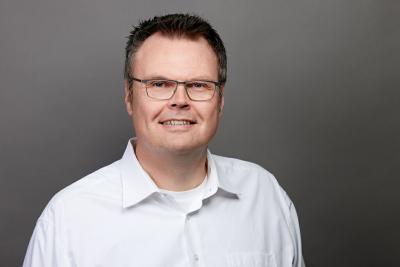

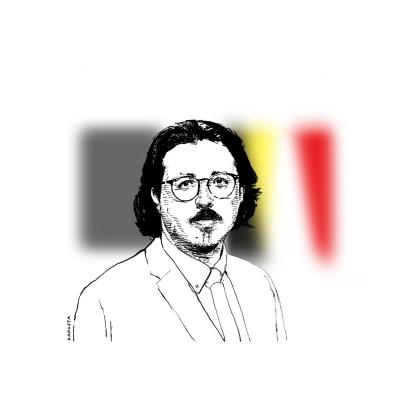
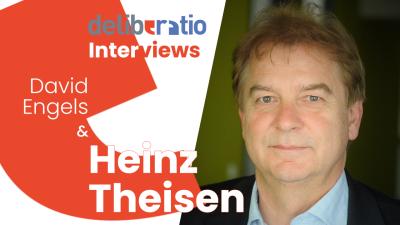

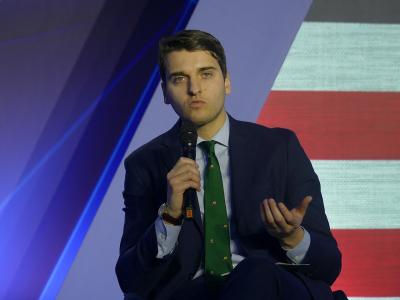



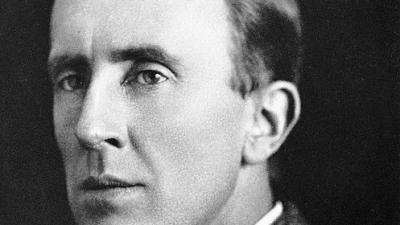

Comments (0)